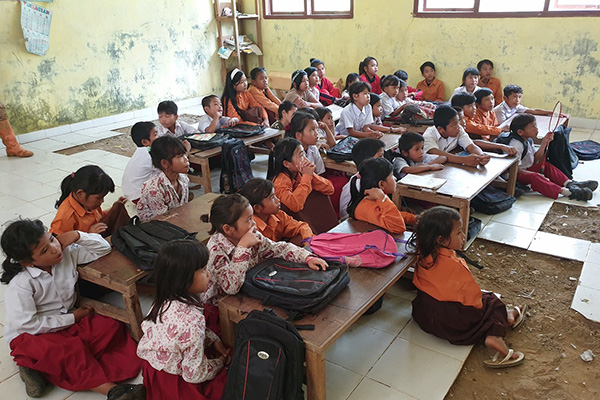
Location: Jambi, Sumatra, Indonesia
The Bukit Tigapuluh ecosystem in Sumatra is home to two indigenous tribes including the Talang Mamak. The Talang Mamak are a non-nomadic Indigenous community of about 8,000 people. They live solely in the Bukit Tigapuluh landscape – the last remaining area of large contiguous dry lowland forest in Sumatra, which comprises an extremely rich and unique ecosystem and high biodiversity that includes Critically Endangered Sumatran tigers and orangutans. While also partly a hunting and gathering society, the main agricultural activities of the Talang Mamak consists of small subsistence farms with low yields. Due to their low income, some members of the community participate in illegal logging, clearing their traditional village forests for short-term income. Doing so puts at risk the long-term economic sustainability and health of the community, but also contributes to the deforestation of the Bukit Tigapuluh landscape. Research by Australian academics, Lesley Potter and Simon Badcock, found the priority development of the Talang Mamak is education for their children but the cost associated with it has been too great (2001).
The Orangutan Project, Frankfurt Zoological Society and WWF Indonesia formed a limited Company; PT Alam Bukit Tigapuluh in 2015 in order to lease high conservation value forest in the buffer zone of the Bukit Tigapuluh National Park as Ecosystem Restoration Concessions. In 2019, PT Alam Bukit Tigapuluh commenced a sustainable community development initiative to improve the living standards of an Indigenous Talang Mamak community by incentivising education through offering nutritious meals to students who attend classes.
Increasing the participation rate of children receiving an education and improving the children’s ability to focus on their learning by having a nourishing meal, is a sustainable way to reduce poverty and improve economic growth for the community. The secondary objective of the project is to build a future educated workforce to provide better opportunities of employment for the Talang Mamak community, increasing their potential for earnings and lifting them out of poverty. Employment opportunities will reduce the desire to engage in illegal logging or the illegal wildlife trade, helping to protect Critically Endangered wildlife but also providing a more sustainable future for this impoverished community.
This food project provides the Talang Mamak school children with a meal and fruit break every day, giving them incentive to attend and stay at school, improving their health and academic achievement. Two local people from the local Simerantihan community have been recruited to purchase food supplies every week, cook and provide the food for the children at school. The food provided consists of one light breakfast, one snack at break time and milk. The food supplies are mostly purchased from local farmers around Simerantihan and Suo Suo villages.


